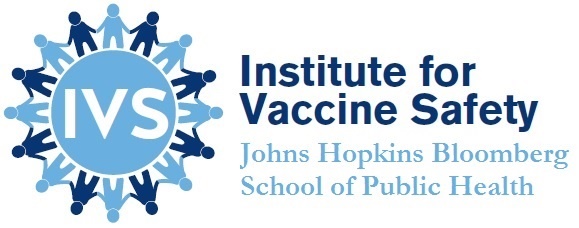Vaccines for Use in Pregnancy and Breastfeeding
Vaccines and Pregnancy | Vaccines and Breastfeeding | ReferencesVaccines and Pregnancy
Below is a table summarizing the recommended use of vaccines during pregnancy in the U.S. Included in this table is information most relevant to women of child-bearing age for certain vaccines. For further information about these vaccines and their use outside of pregnancy, please see the individual vaccine summaries that are linked in the table.
The American College of Obstetricians and Gynecologists (ACOG) provides information on vaccinating during pregnancy and the Centers for Disease Control and Prevention (CDC) lists guidelines for vaccinating during pregnancy.
Vaccines and Pregnancy | ||
| Vaccine | Indication During Pregnancy | Information Relevant to Women of Child-Bearing Age |
| Hepatitis A | Not routinely recommended during pregnancy | The low theoretical risk of vaccination should be weighed against the risk of hepatitis A infection among pregnant women at high risk of exposure. |
| Hepatitis B | Not routinely recommended during pregnancy | In order to prevent perinatal hepatitis B infection, all pregnant women should be routinely screened for hepatitis B surface antigen (HBsAg), and subsequent postexposure immunoprophylaxis should be administered to infants born to women who are HBsAg-positive or of unknown HBsAg status. |
| Herpes Zoster | Contraindicated during pregnancy | |
| Human Papillomavirus (HPV) | Not routinely recommended during pregnancy | If a woman is discovered to be pregnant after receiving HPV vaccine, no intervention is indicated. The remaining doses in the series should be delayed until after the pregnancy. |
| Inactivated Influenza Vaccine (IIV) | Routinely recommended during pregnancy | Pregnant women and young children are at increased risk of complications and hospitalizations from influenza. |
| Live Attenuated Influenza Vaccine (LAIV) | Contraindicated during pregnancy | |
| Measles, Mumps and Rubella (MMR) | Contraindicated during pregnancy | Vaccination against rubella is emphasized for all non-pregnant women of childbearing age, especially those born outside of the U.S. Those without evidence of immunity should be given MMR vaccine, excluding women who are pregnant or currently attempting to become pregnant. Pregnancy should be avoided for at least 4 weeks following MMR vaccination; however, inadvertent MMR vaccination should not be considered an indication for termination of the pregnancy. |
| Meningococcal | Not routinely recommended during pregnancy | Pregnancy should not preclude indicated MenACWY vaccination. MenB vaccination should be deferred in pregnant and lactating women unless the woman is at increased risk and the benefits of vaccination outweigh the potential risks. |
| Pneumococcal | Not routinely recommended during pregnancy | Women who are at high risk of pneumococcal disease should be vaccinated before pregnancy, if possible. |
| Inactivated Polio Vaccine (IPV) | Not routinely recommended during pregnancy | Vaccination of pregnant women with IPV should generally be avoided. However, if a pregnant woman is at increased risk for polio infection and requires immediate protection, IPV can be administered in accordance with the recommended schedule. |
| Tetanus, Diphtheria and Pertussis (Tdap) | Routinely recommended during pregnancy | Most deaths from pertussis occur in the first few months of life prior to receipt of routine infant vaccines against pertussis. Vaccination with Tdap during pregnancy helps protect infants from pertussis. |
| Varicella | Contraindicated during pregnancy | Pregnancy should be avoided for at least 4 weeks following varicella vaccination; however, inadvertent varicella vaccination should not be considered an indication for termination of the pregnancy. |
Vaccines and Breastfeeding
Smallpox and yellow fever vaccinations should not be given to women who are currently breastfeeding.
Both vaccine viruses have been transmitted to infants from breastfeeding
mothers and caused adverse events. However, these vaccines are not routinely recommended to the general population in the United States. Other vaccines that are currently routinely recommended to the general population in the U.S.* do not affect the safety of breastfeeding for women or their infants.
According to the ACIP’s General Recommendations on Immunization [1]:
“With 2 exceptions, neither inactivated nor live-virus vaccines administered to a lactating woman affect the safety of breastfeeding for women or their infants. Although live viruses in vaccines can replicate in the mother, the majority of live viruses in vaccines have been demonstrated not to be excreted in human milk. Varicella vaccine virus has not been found in human milk. Although rubella vaccine virus has been excreted in human milk, the virus usually does not infect the infant. If infection does occur, it is well tolerated because the virus is attenuated. Inactivated, recombinant, subunit, polysaccharide, and conjugate vaccines, as well as toxoids, pose no risk for mothers who are breastfeeding or for their infants. Breastfeeding is a contraindication for smallpox vaccination of the mother because of the theoretical risk for contact transmission from mother to infant. Yellow fever vaccine should be avoided in breastfeeding women, because 2 cases (one confirmed, one probable) of yellow-fever vaccine associated acute neurotropic disease (YEL-AND) have been detected in infants whose mothers were vaccinated but were not vaccinated themselves. In both infants, vaccine virus was recovered from the cerebrospinal fluid of the infant, but the exact mode of transmission was not precisely determined because vaccine virus was not recovered from breast milk. However, when nursing mothers cannot avoid or postpone travel to areas endemic for yellow fever in which risk for acquisition is high, these women should be vaccinated.
Limited data indicate that breastfeeding can enhance the response to certain vaccine antigens. There are no data to suggest that passive transfer of antibodies in human milk can affect the efficacy of live-virus vaccines. Breastfed infants should be vaccinated according to the recommended schedule.”
